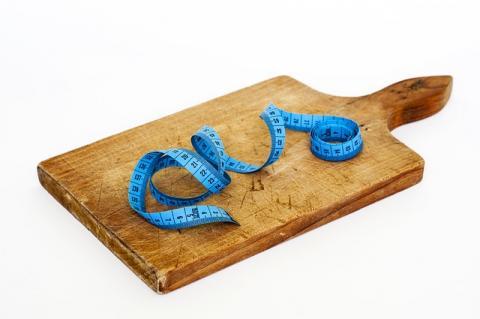
It’s no small irony that probably the best way to gain weight in the long term is to go on weight loss diet. But, considering the weight loss industry generates more than $60 billion in sales annually, what incentive would this industry have to share this information?,
The weight loss industry is big business for selling books and the latest fad diets, aligned with brilliant marketers promoting dietary supplements, prepared meals and other products and services to people who want to lose weight.
According to the research journal Obesity, there’s evidence that dieting leads to weight gain – with dieters temporarily losing weight, but slowing gaining back more than they weighed before they went on a diet. Non-dieters, by contrast, tend to feel less hungry and their bodies have higher metabolism rates, which helps them maintain a healthier weight.
Dieting messes with hormones that regulate eating, which makes people on diets hungrier, while at the same time lowering their metabolism rates. This leads dieters to gain weight faster in the future—even if they eat less than non-dieters.
A common sense solution is difficult in our society, which values immediate results and miracle solutions: Change your eating habits (without dieting) and get more exercise to maintain a healthy weight. The key is to implement long term dieting changes, rather than quick-fixes.
Here’s some suggestions for balancing eating desires for the mind and the body, compiled from various dietary and health experts.
•Avoid diet sodas, manufactured and highly-processed industrial foods. Keep away from the center aisles of supermarkets where unhealthy foods are stocked.
•Eat mostly plants and limit meat consumption to one-quarter of your daily intake. Use smaller plates. Go easy on high-fat dairy products and your favorite junk foods. Use more spices and less butter to enhance taste. Stop eating a few hours before bedtime and get enough sleep.
•Drink more water and limit consumption of any sugary drinks, including fruit juices. Maybe drink a glass of water prior to eating to help feel full. Drink alcohol only in moderation.
•Experiment with creative food substitutions regularly. For example, instead of spaghetti and meatballs, try eating meatballs on a bed of spinach. Garnish meals with cheese for flavor, instead of cooking with larger amounts of cheese. Eat fewer unhealthy and high-calorie foods.
•Exercise more - but this doesn’t necessarily mean a sweaty workout (unless you like it). Include exercise as part of your daily routine the same way that brushing your teeth is. Make it a habit to walk instead of driving short distances. Climb stairs instead of riding elevators. Park further away from destinations to get in more walking time. Spend less time sitting.
Have you ever noticed that overweight people generally don’t exercise regularly; they may drink diet soda and frequently cycle on and off restrictive yo-yo diets, counting calories and eventually go back to binging on favorite foods?
Perhaps the reason healthy weight people are bad customers for the weight loss industry is because they maintain good and balanced eating habits and exercise.
Ironically, it seems the best way to gain weight in the long-term is to go on a weight loss diet.
